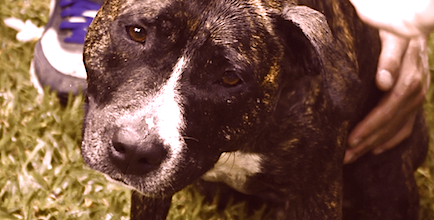Can Dogs Eat Peaches? Everything You Need To Know.
Key Points: Yes, dogs are allowed to eat peaches, but it’s important to do so with caution. Peaches are a good source of vitamins A and C and fiber, which can be beneficial for dogs. However, the peach pit should be removed as it contains cyanide and can be a hazard for choking or cause…

- The flesh of peaches can be a sweet, nutritious treat for dogs in moderation, but the pits, stems, and leaves should always be avoided.
- Peach pits contain cyanide and pose a choking and intestinal blockage risk, so always remove them before offering peaches to your pup.
- Stick to fresh, washed peaches—avoid canned, preserved, or sweetened varieties, as they contain added sugars and harmful ingredients.
Yes, dogs are allowed to eat peaches, but it’s important to do so with caution. Peaches are a good source of vitamins A and C and fiber, which can be beneficial for dogs. However, the peach pit should be removed as it contains cyanide and can be a hazard for choking or cause intestinal blockage.
Additionally, it’s advisable to avoid canned peaches or those in syrup due to high sugar content. Always introduce peaches in small quantities to monitor for any allergic reactions and ensure the peach is thoroughly washed. As with any treat, moderation is essential, and you should consult your vet before introducing new foods to your four legged friend.

Don’t leave your pet’s safety to chance
Sign up for Petful recall alerts today.

Are Peaches Safe for Dogs?
Yes, peaches are generally safe for dogs to eat in moderation, but there are important safety precautions to consider:
- Remove the Pit: The pit of a peach is dangerous for dogs. It contains cyanide, which is toxic, and can also pose a choking hazard or cause an intestinal blockage if swallowed.
- No Canned Peaches or Syrup: Avoid feeding your dog canned peaches or peaches in syrup. These often contain high sugar content and can include sweeteners that are harmful to dogs.
- Moderation: Peaches should be given as an occasional treat, not a regular part of a dog’s food. Overconsumption can lead to stomach upset or diarrhea due to their fiber content.
- Wash Thoroughly: Make sure to wash the peach thoroughly to remove any pesticides or chemicals from the skin.
- Monitor for Allergic Reactions: Some dogs may be allergic to peaches. Introduce them slowly and watch for any adverse reactions.
Peaches can offer health benefits such as vitamins A and C, and fiber, but it’s always wise to consult with a veterinarian before introducing different foods to your pup, especially if they have specific health issues or dietary needs.
How Much Peach Can Dogs Eat?
Determining the exact number of peaches a dog can eat based on their weight isn’t straightforward, as it depends on various factors including the dog’s overall health, dietary needs, and how they react to peaches.
Here’s a rough guideline:
- Small Dogs (10-25 lbs): A few small peach slices (2-3) of peach would be sufficient. The fruit should be well-proportioned to the dog’s size to avoid overfeeding.
- Medium Dogs (25-60 lbs): Medium-sized dogs can have a bit more, maybe a quarter to half of a peach (4-5 slices), depending on their overall diet and health.
- Large Dogs (60-100 lbs): Large dogs may be able to have half a peach or slightly more (5-6 slices). However, it’s still important to feed in moderation.
If you notice any signs of stomach upset or allergic reactions, discontinue feeding them peaches and consult your veterinarian. Additionally, always check with your vet for personalized advice, especially if your dog has specific dietary restrictions or health issues.
Nutritional Benefits of Peaches
There are many nutritional benefits that make peaches good for your pup.
- Vitamins: Peaches are a good source of vitamins A and C. Vitamin A is important for maintaining healthy vision, skin, and coat, while Vitamin C is an antioxidant that can help boost the immune system.
- Fiber: The fiber in peaches can aid in digestion and help maintain a healthy gastrointestinal tract. It can also contribute to a feeling of fullness, which can be beneficial for weight control.
- Low in Calories: Peaches are relatively low in calories, making them a good treat option for dogs, especially those that need to maintain or lose weight.
- Potassium: This essential mineral, found in peaches, supports proper muscle function, nerve signaling, and fluid balance in the body.
- Water Content: Peaches have high water content, which can help keep dogs hydrated, particularly during hot weather.
While these benefits make peaches a healthy treat option, it’s important to remember that they should be given in moderation and not as a substitute for a balanced canine diet.
Additionally, some dogs may have sensitivities or allergies to peaches, so it’s advisable to introduce them slowly and in small quantities, and always consult with a veterinarian before making significant changes to your dog’s food.
How to Feed Peaches to Dogs
Preparing peaches for dogs is a simple process, but it’s important to ensure that you safely feed them to your four legged friend. Here’s how to prepare peaches for dogs:
- Choose Fresh Peaches: Opt for fresh, ripe peaches. Avoid canned peaches or those preserved in syrup, as they often contain added sugars or artificial sweeteners that are not good for dogs.
- Wash Thoroughly: Wash the peach thoroughly under running water to remove any pesticides or chemicals from the skin.
- Remove the Pit: This is the most crucial step. The peach pit (or peach stone) of the peach contains cyanide, which is toxic to dogs. It also poses a hazard for choking and could cause an intestinal blockage if ingested. Carefully cut the peach open and remove the pit.
- Cut into Appropriate Sizes: Slice the peach into small, bite-sized pieces. The size of the pieces should be appropriate for your dog’s size to prevent choking. For small dogs, the pieces should be smaller; for larger dogs, they can be a bit bigger.
- Moderation is Key: Remember that peaches should be given as a treat, not as a main part of your dog’s diet. Treats in total should make up no more than 10% of your dog’s daily caloric intake.
- Remove Skin (Optional): Some dogs might have difficulty digesting the skin, so you can peel it off. However, the skin is not toxic to dogs and contains additional fiber and nutrients, so it’s safe if left on.
- Watch for Allergic Reactions: When introducing peaches start with a small amount and monitor your dog for any signs of an allergic reaction or gastrointestinal upset.
Always consult with your veterinarian before introducing different foods to your doggy, especially if your dog has health issues or dietary restrictions.
Allergies
Peach allergy in dogs, like other food allergies, can manifest in various ways. If your dog has an allergy to peaches, you might notice one or more of the following symptoms:
- Skin Irritations: This is one of the most common signs of an allergic reaction. You may notice itching, redness, rashes, hives, or swelling on your dog’s skin.
- Gastrointestinal Issues: Symptoms like vomiting, diarrhea, or gas can indicate a food allergy. Some dogs may also experience a change in appetite.
- Ear Infections: Frequent ear infections or inflammation in the ears can sometimes be a sign of a food allergy.
- Paw Licking or Chewing: Dogs with food allergies often excessively lick or chew their paws due to irritation.
- Respiratory Symptoms: Although less common, some dogs might exhibit respiratory symptoms like coughing, sneezing, or a runny nose.
- Behavioral Changes: In response to discomfort or itchiness, a dog might become more irritable or restless.
If you observe any of these symptoms after feeding peaches to your dog, it’s important to stop feeding them the fruit immediately and consult with a veterinarian. The vet can help identify the cause of the allergic reaction and recommend appropriate treatment. Remember, each dog is unique, and what might be a harmless treat for one might not be suitable for another.
Frequently Asked Questions (FAQ)
Can Dogs Eat Canned Peaches?
It’s generally not recommended to feed dogs canned peaches. Peaches in cans often contain high levels of added sugar or syrup, which can be unhealthy for dogs, potentially leading to obesity, dental problems, diabetes and upset stomach. Additionally, some canned fruits may contain sweeteners like xylitol, which is toxic to dogs and can cause serious health issues.
If you do choose to give your dog peaches, it’s best to stick with fresh, ripe peaches, ensuring that they are thoroughly washed and the pit is removed to avoid any risk of choking or cyanide poisoning. As with any treat, peaches should be given in moderation and introduced into the diet slowly to watch for any adverse reactions.
Can Dogs Have Frozen Peaches?
Yes, dogs can eat frozen peaches, but there are a few things to keep in mind. Frozen peaches can be a refreshing tasty treat, especially on a hot day. However, they should be given in moderation, just like fresh peaches. Before feeding frozen peaches to your dog, ensure that they are free of added sugars, syrups, or preservatives, which can be harmful to dogs. The peaches should be thawed slightly or cut into small, manageable pieces to prevent choking or dental issues, especially for smaller dogs.
Can Dogs Have Grilled Peaches?
Dogs can eat grilled peaches in moderation, but it’s important to ensure they are prepared safely. The peaches should be grilled without any added sugars, spices, or seasonings, as these can be harmful to dogs. Also, make sure to remove peach pits before grilling, as it contains cyanide and can be a choking hazard. Grilled peaches should be served plain and cool enough to avoid burning your dog’s mouth.
Can Dogs Eat Peach Yogurt?
It’s generally not advisable to give dogs store-bought peach yogurt. Most commercial peach yogurts contain added sugars, sweeteners (like xylitol, which is toxic to dogs), and other additives that can be harmful to dogs. Additionally, many dogs are lactose intolerant and may struggle to digest dairy products, leading to gastrointestinal issues like diarrhea or vomiting.
If you want to give your dog a yogurt treat, it’s safer to choose plain, unsweetened yogurt and add fresh peach pieces (pit removed) yourself. Even then, it should be given in moderation, especially if your dog is not used to dairy products.
Can Dogs Eat Preserved Peaches?
It is not recommended to feed your dog preserved peaches. These often contain high levels of sugar, syrup, preservatives, or sweeteners, which are unhealthy for dogs and can lead to issues such as obesity, dental problems, and even more serious health conditions like diabetes. Some preservatives and sweeteners, like xylitol, are particularly toxic to dogs and can cause life-threatening reactions. If you want to treat your dog with peaches, the safest way is to use fresh, ripe peaches.
What To Do if Your Dog Eats a Peach Pit?
Peach pit, also known as peach stones can cause a big threat to your furry friend. If your dog accidentally eats a peach pit, it’s important to act quickly. First, monitor your dog for signs of distress, such as choking, difficulty breathing, or signs of digestive system blockage (like vomiting, abdominal pain, or constipation). Even if your dog seems fine initially, the pit could still pose a risk of internal blockage or release cyanide compound when digested.
Contact your veterinarian immediately for advice. They may instruct you to watch for specific symptoms, bring your dog in for an examination, or proceed directly to an emergency clinic. Do not attempt to induce vomiting unless specifically instructed by a professional, as this can sometimes cause more harm. Providing the vet with details about your dog’s size, the size of the pit, and how much time has passed since ingestion will help them give the best advice for your situation.
Recipes
When introducing this dog friendly fruit to your four legged friend, it’s essential to keep it simple and healthy.
Here are a few dog-friendly recipes that pet parents can use to incorporate peaches:
- Peachy Dog Treats:
- Puree one ripe, peeled, and pitted peach.
- Mix the puree with 1 cup of whole wheat flour and 1/4 cup of water to form a dough.
- Roll out the dough and cut it into shapes with a cookie cutter.
- Bake at 350°F (175°C) for 20-25 minutes or until crisp.
- Let them cool before serving.
- Frozen Peach Yogurt Bites:
- Blend one ripe, peeled, and pitted peach with a cup of plain, unsweetened yogurt.
- Pour the mixture into an ice cube tray or silicone mold.
- Freeze until solid and then serve as a cool treat.
- Simple sliced peaches:
- Simply peel and pit a ripe peach.
- Cut it into small, manageable slices or chunks.
- Offer these as a natural, sweet treat.
Peach and Banana Smoothie:
- Blend one ripe, peeled, and pitted peach with a banana and a cup of plain, unsweetened yogurt or coconut milk.
- Serve in small amounts as a refreshing treat.
Remember, treats should only make up a small portion of your dog’s diet. Always introduce new foods gradually and in small quantities to monitor for any adverse reactions. It’s also a good idea to consult with your veterinarian before introducing new food to your dog, especially if your dog has any health issues or dietary restrictions.
Curious about what other foods dogs can eat? Check out these related articles below:







